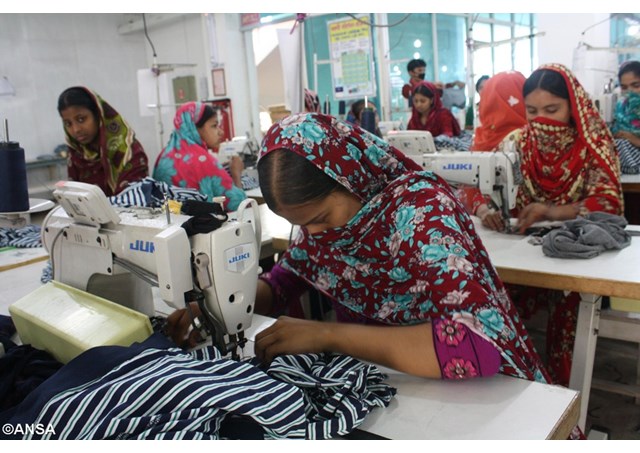
Bangladesh Church contemplating new ministry for migrants

The Catholic Church in Bangladesh is planning to start a new ministry to assist Christian domestic migrant workers and fill a gap in providing spiritual and social care, and to save them from abuse and exploitation. "Migrant Christians often don't get proper sacramental, pastoral or social services because they are busy supporting their families and lose touch with the church," said Theophil Nokrek, secretary of the Justice and Peace Commission of the Catholic Bishops Conference of Bangladesh (CBCB). "Most domestic migrant workers who come from rural areas are poorly educated and unaware about the challenges of city life, which makes them vulnerable to various kinds of abuse and exploitation," Nokrek said. He was speaking on the sidelines of a seminar for domestic migrant workers at the Holy Spirit National Major Seminary in Dhaka on June 10. The Justice and Peace Commission and Caritas Bangladesh organized the seminar, which drew about 200 participants, mostly from the tribal Garo community. Nokrek said the seminar is part of a series of programs designed to help an estimated 60,000 migrant Christians living and working in Dhaka and nearby areas.
CBCB is currently discussing the feasibility of opening a new ministry for migrants in Dhaka, which has the largest concentration of domestic migrant workers, he said. "The ministry will consist of five priests, several nuns and laypeople, and will serve the needs of a large number of migrant workers," he said.
Currently, the bishops' conference runs a migrants desk and offers assistance to vulnerable workers with support from Caritas, according to Ranjon Francis Rozario, Caritas Dhaka's regional director. He said migrants face violence especially against women and children, lack of health services, high rate of family breakdowns, scarcity of accommodation and legal support. According to 2011 Bangladesh Census, about 28.4 percent of the country's 160 million people live in cities and 4.5 percent are migrant workers from rural areas. (Source: UCAN)
| All the contents on this site are copyrighted ©. |


